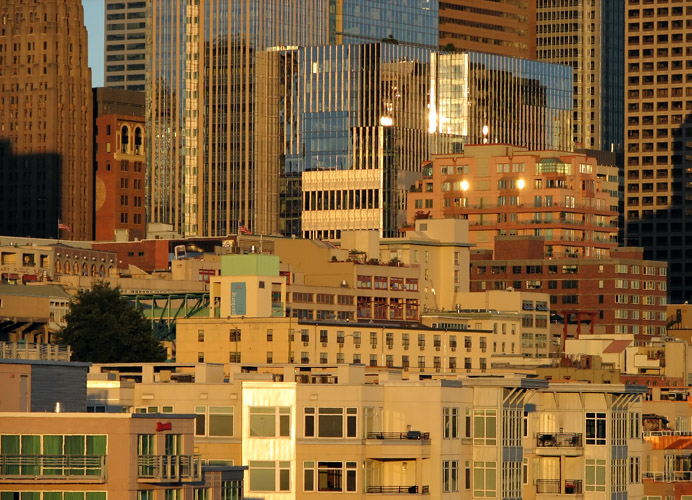The "Shining City on a Hill" Only Shines for a Select Few.
 Over twenty years ago President Reagan told us of how he envisioned "all" Americans living in the "shining city upon a hill," economic rhetoric that President Bush twists his tongue around every chance he gets. The reality is we are not all living in the "shining city upon a hill." Only a very small percentage of Americans reside in this "shining city" while most of us are struggling to make ends meet. This year seems twice as bad as last year for the poor and middle-income America.
Over twenty years ago President Reagan told us of how he envisioned "all" Americans living in the "shining city upon a hill," economic rhetoric that President Bush twists his tongue around every chance he gets. The reality is we are not all living in the "shining city upon a hill." Only a very small percentage of Americans reside in this "shining city" while most of us are struggling to make ends meet. This year seems twice as bad as last year for the poor and middle-income America.
The Bush administration evaluates our economy from the perspective of investment. They emphasize the performance of the stock market, deemphasizing the purchasing power of the average worker's paycheck or the financial conditions of those who are working too hard to find out what's going on. These hard-working people are the silent majority and that's the way Bush wants to keep it. God forbid the "silent majority" have the time, or are not so enmeshed in their own financial struggles that they figure out conservative Republican supply-side or trickle- down economics is the very reason they struggle and worry every day if they will have enough to eat tomorrow, next week or next month.
The buying capacity of the same wages Americans earned last year has eroded to the point where people are struggling to keep up with the cost of living. Higher rent, food, gasoline, energy and medical bills are making the lower half of middle-income America live more like the poor, and the poor -- unless they can figure out all the bureaucracy involved in finding poorly funded social services -- are left to fend for themselves the best they can. Some are lucky enough to find a church or other charity group to minister to their needs but others are left to eat and live like wild animals.
Whether it is illness, death, divorce or job loss, too many people today live on the edge, one unfortunate event away from plunging into financial ruin. This shouldn't be in a country as wealthy as ours. We have more than enough resources to make sure every citizen can find ways to meet the most basic of needs -- food, shelter, medical care, and hope, for without hope of improving one's circumstances, life is not worth much.




0 comments:
Post a Comment